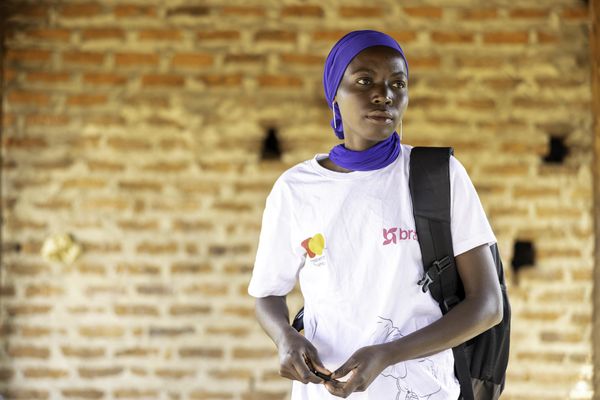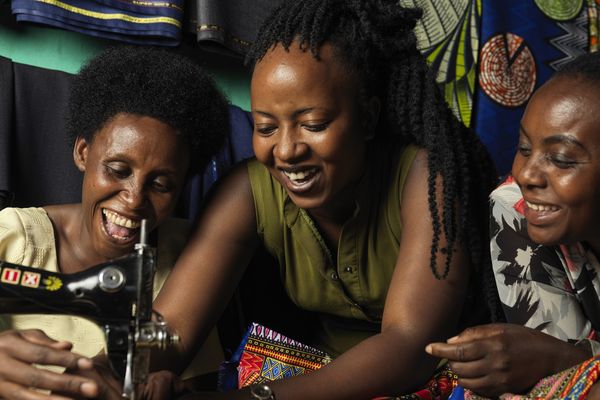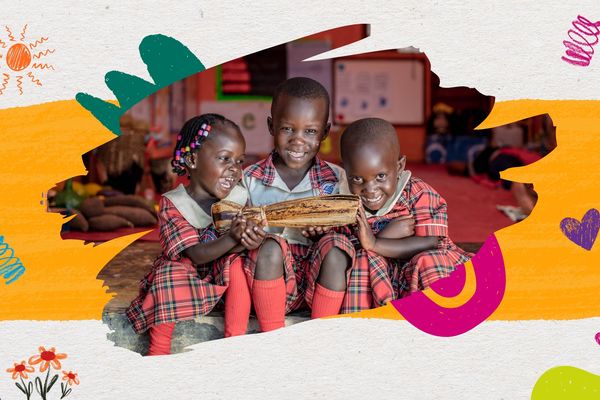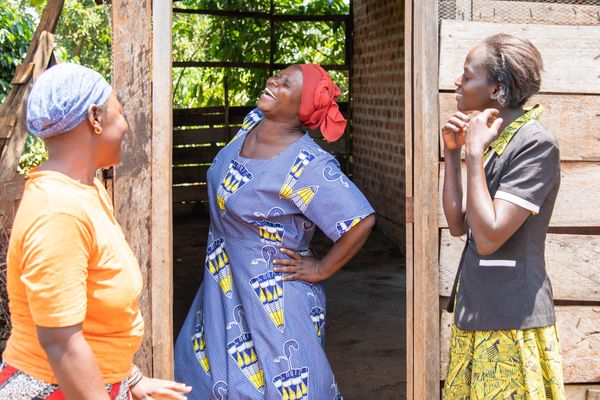This is the first of a two-part series where we shine light on stories from the last mile - of young girls and women getting and using the opportunities they need to reach their full potential. As they make their journeys, we see them resist the inequality entrenched in our systems, the systems that fuel gender-based violence. It starts with creating spaces where they feel safe and their voices are heard.
“When you see me, I may not look too confident but once you get to know me, you will see a very different side to me.
At the start of the sessions, we take turns in talking through the club rules – no discrimination, no judgmental comments, and no sharing of anyone else’s personal stories that they trusted us with.”
When we first met, Jamira was explaining the female reproductive system to the participants in her club in Uganda’s Iganga, pointing at a hand-drawn poster, explaining the function of each part.
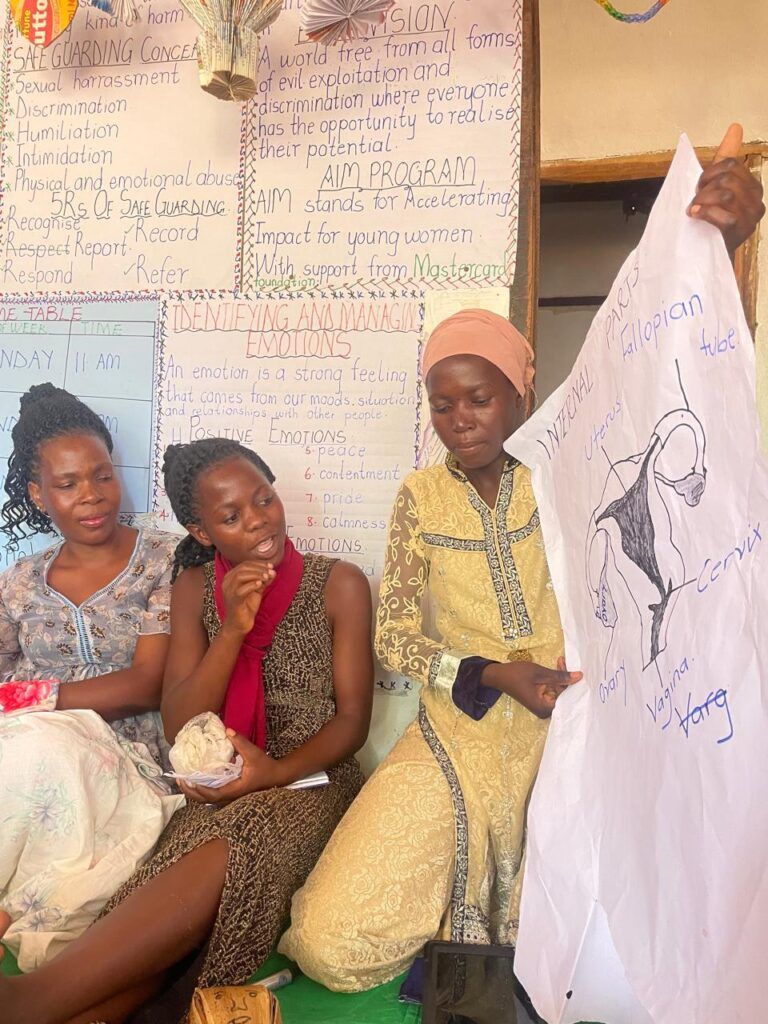
Her voice commands everyone’s attention. The moment she senses a dip in participation, she gets everyone to stand up and dance. The room erupts in happy voices of women who sing and cheer each other on.
“I have been a mentor in these youth clubs since 2018. What I enjoy most is mentoring the youngest age group of participants – 12 to15-year-olds. Girls of these ages participate most actively, and their curious minds are always ready to learn, no matter how difficult or sensitive the topics are. I make sure that my club is a safe space where everyone can express themselves – free of judgement.”
Jamira’s days are long and they start early. She cooks for her family and then prepares for the week’s sessions scheduled in her tab.
The sessions don’t start until afternoon when participants are back in their homes – from school or work. The clubhouse, a red-brick building with a tin roof that shines from afar, has its colourful doors wide open as girls stream in for the day’s session. “It takes me 15 minutes to walk from my home to the club. Every morning, I revise the curriculum and prepare for the day’s topic. I call my supervisor whenever I have a problem understanding something in the workbook,” Jamira says.
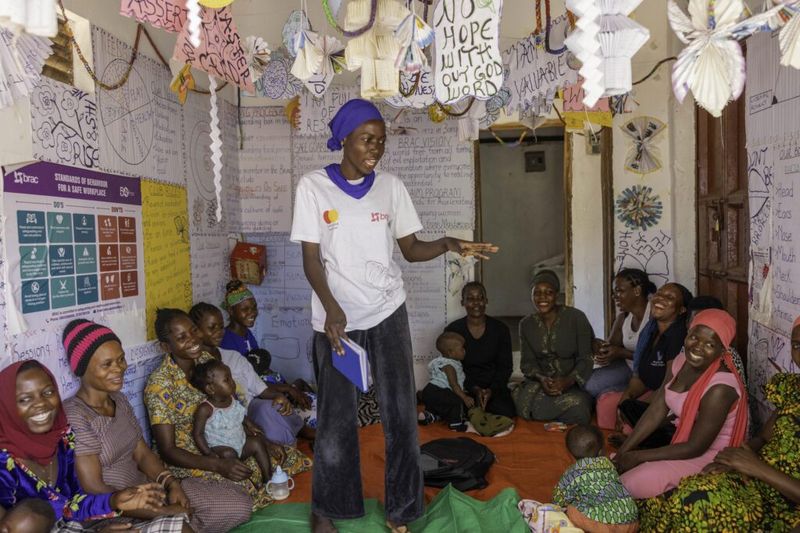
Part of a proven programme
Jamira is one of more than 6,800 mentors who have been rigorously trained to lead these transformative clubs across Africa, where girls and young women come together to access resources that affect their wellbeing and the decisions they make for themselves. Mentors are recruited from communities based on their educational qualifications and leadership skills, and know most of the participants in their clubs personally.
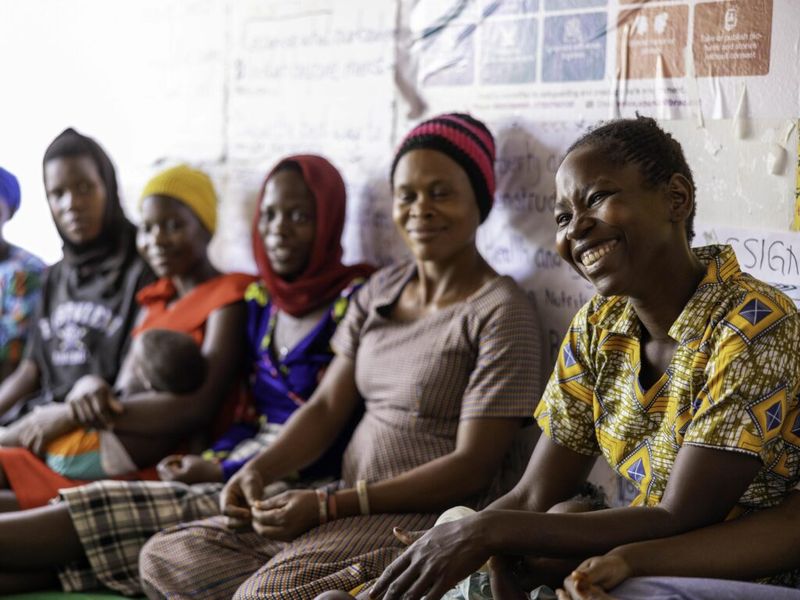
Studies from Uganda show these clubs delay early marriage and enable young women to learn, grow businesses and build incomes for themselves. Through the creation of these safe spaces, girls and young women come together with a mentor to receive training on trust and confidence building, saving and investing, to name a few. These spaces are central to a proven programme that is now being adapted to reach a bold target of over 1.2 million girls in the next five years.
What Jamira does for many of these young girls is start a conversation. A conversation that many of them never had the chance to have – regarding their bodies and how they change through adolescence, their emotional wellbeing, the value of consent and getting their voices heard, and so much more.
Asking questions about sex and violence can be unnerving for young girls anywhere. But when every one in four girls in Uganda aged 15-19 years have a child or are pregnant, these conversations are crucial.
Jamira presents the concepts of sexual and reproductive health and rights in easy-to-understand language. The words and concepts are often completely new to most – many of whom are survivors of sexual abuse and violence, and many who were forced to drop out of schools. Some, as young as 15, have their own children with them in the clubs. Many of the young girls and women we spoke to during Jamira’s sessions said they did not know they were pregnant until the pregnancy had advanced significantly, many were forced into sex, and some engaged in consensual sex but they either did not know about contraception, or they knew about it but could not access the right product. Some were forced to marry the father of their baby – even a rapist – to spare their families the stigma associated with an unmarried pregnancy.
In the last decade, there has been both a growing interest in programming to prevent gender-based violence and research on what works to reduce the prevalence, frequency and severity of violence against women and girls. Research shows comprehensive sexuality education has the potential to be a powerful tool in the prevention of gender-based violence.
At these after-school clubs, change is brewing. Young girls and women are talking, sharing and learning about their sexual and reproductive health and rights. Evidence shows, sensitising girls and young women and men about their sexual and reproductive rights is one step forward in our fight against gender-based violence.
They are leaving with an understanding that everyone has the right to be informed of and to have access to safe, effective and affordable methods of fertility regulation of their choice, and the right of access to healthcare services that will enable them to go safely through pregnancy and childbirth.
The expectation is that they will carry these learnings forward. What Jamira knows and talks about in these clubs are not limited to that space. The girls go back home and talk to their mothers, sisters and friends and they in turn, pass it on to their peers. To quote an old adage – to know, is to be free.
Sameeha Suraiya Choudhury and Abida Rahman Chowdhury
